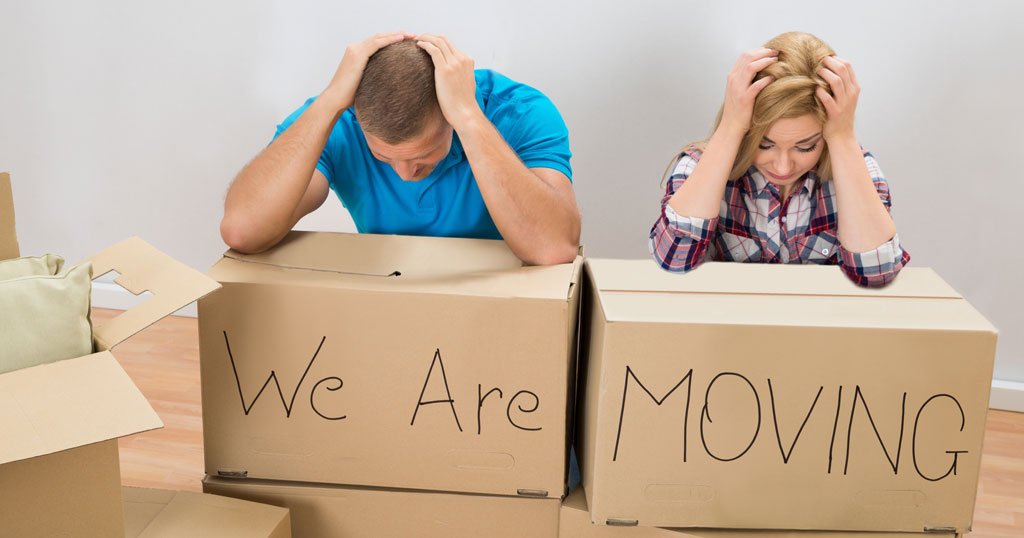The do’s and don’ts of packing
The joy and the stress of moving overseas seem to go hand in hand… and never more so if you don’t have a packing list.
Or even if you do have packing list – are you sure you’re still not taking too much? How do you really know what to leave out and what to include?
Perhaps you’re moving somewhere with a completely different climate than you’re used to. How can you possibly know what you need to wear in a country where winter temperatures drop to minus 20°C when the coldest you have ever experienced is a ‘mild’ 0°C? On the flip side, if you’re moving somewhere the daily temperatures are regularly higher than your oven, do you really need to take your winter clothing? (The answer is actually yes. Because you may go on holiday somewhere cooler.)

We do have a packing list when we move, but we still take way too much stuff. It is a huge learning curve. Over the years I’ve learned a lot about packing and share this in the hope you won’t make the same mistakes I did.
Here are some of my top do’s and don’ts of packing for your move abroad.
Research
Always, always, always do your research and find out what’s available and not available in the country you are going to. You may be surprised at what you take for granted. Certain sanitary products being high on the list of many women’s requirements. The internet makes it incredibly easy these days to find out if the local supermarkets stock your favourite brand of washing detergent or child’s favourite breakfast cereal.
I’d also suggest you join some of the expat groups in your new country and take the opportunity to ask any questions before you get there.
Purge
When I first moved abroad I took way too much stuff with me. I was very keen to take everything that made my house a home. Much to my friends amusement this meant taking my rock collection. Yes, I collect rocks. And yes, I have moved (most of them…) them with me ever since. Not so much a mistake from a personal point of view, but quite a weighty box to lug around the world!
When I look back now I either laugh or cringe (quite often both at the same time) at what we packed – all the toys, fancy clothes I’ve never worn, camping equipment we’ve only used once… the list goes on! I guess the moral of the story is even if you can’t find the specific items you want in your new country, I’m pretty sure you will find an equally good equivalent.
So pack light. And with all the stuff you don’t need? Give it to your friends and family and if they don’t want it, take it to the charity shops or do a car boot sale.
Moving overseas represents one of the few and genuine opportunities we have in our lives to totally renew. So declutter your belongings; finally get rid of those items which you don’t want or which carry bad memories and start again. Perhaps embrace the Marie Kondo philosophy but don’t get too carried away – you want to have some items left for your new home!
Be practical
Be practical about what you’re taking. Ask yourself the following question:
“If I didn’t have this in my new life, how upset would I be?”
This seems to (mostly) sort out the essentials from the non-essentials.
Be sentimental
The truth is there are risks attached to shipping your belongings overseas. If you own something irreplaceable then consider how long you are going for and whether you have somewhere secure to store it. Consider carrying it with you in your luggage if possible, but again, this brings its own risks. Will it make you happier to have this item with you in your new life abroad? Or would it be better to leave it safely in storage?
If you’re someone who likes to have photos around, such as shots of your wedding and your family, or any other items of sentimental value, then make sure to include these on your packing list too.
Of course, if you are emigrating permanently rather than setting off on a finite posting, your needs will be different.
Involve the children
Do as much as you can to involve your kids in the packing process. Don’t just pack it up and do it for them. Make the time to involve them, even if just a little. You could get them to give stuff away or have their own special box to pack with their own belongings.
Remember to keep them in the loop. Explain what you are doing with the belongings and how long it will take them to get to the destination. Their world is going to change hugely so set some expectations around it.
Make sure to carry a few special items of theirs with you on the plane in case of delays in your shipping. Kids are not known for their patience. Also, once they have lived for a few weeks without all their ‘stuff’, two things happen: firstly, you will realise just how much ‘stuff’ your children possess, and how little they actually miss it all when it’s not there. And secondly, when it does finally arrive you can enjoy a couple of days of joy while they rediscover all their forgotten items!
Yes, moving abroad can be stressful. I am lying if I say otherwise. Do everything you can to minimise this stress and packing effectively is vitally important. It will save you time, it will save you money and it might even save you a few arguments too.




I appreciate that you said that you should be practical when moving overseas. I received a job offer for a year in Asia, and I need to start packing. Eventually, I will have to find a way to move my things over there.
Your tips are very useful and should be followed by everyone that needs guide and help with packing. As we all know that it’s very stressful thing to move to a new place and every bit of help should be appreciated. I am surely going to share your post with my friends to spread all the helpful info you put out. Thanks!
Yes!! I love that you addressed Including the children. As a psychologist and an multi-country expat, I know how important this is for them to have some control and to feel a sense of connection to the processes as well as to learn decision making. Great post!